
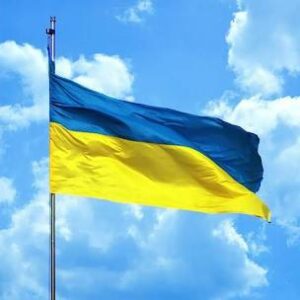
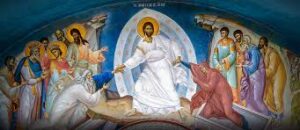
Christ is risen! Truly He is risen!
…..4) Science slashers: Do they not believe in the Creator? 5) The Pope and the Patriarch. 6) Atheist discovers Theosis. 7) Statistics on Religion in Ukraine and Russia, Pentagon Inefficiency: a moral issue? and Gaza Prisoner Exchange
These are assorted items I’ve come across, each too short to comprise a full Post, but too interesting to be lost.
1 Back to normal?
I was talking with our son David sometime in the early 1990s. The cold war was over. The economy was good. Democracy seemed to be thriving. There were no apparent threats to the nation. I remember saying to him: “Enjoy it. It’s not going to last.”
This article by Nikos Konstandaras – from the Greek newspaper Ekathimerini, January 27, 2025 – puts it in more bleak terms. Is he right?
Armed Conflict Location and Event Data (ACLED) noted that the number of armed conflicts in 2024 was double that of five years ago. This year alone, 67,000 people died in Ukraine and 35,000 in Gaza and the West Bank, out of a total of 233,597 deaths recorded globally (30 percent up from 2023).

Slaughter, revenge, violence as deterrent and as policy, are basic elements of humanity’s identity and its story. But we had come to believe (at least those lucky enough to be born in prosperous societies), that after World War II, after the Cold War, with the establishment of the European Union, we had entered an era of unprecedented global understanding and cooperation. Now we see that Trump’s first presidency, Brexit, Putin’s expansionism, the extreme nationalist populism growing in Europe, the United States, and elsewhere, the outbreak of violence in the Middle East, are not a parenthesis. They are a return to humanity’s normality. And our worst fears are becoming part of our daily lives.
2 Some Advice from Gandalf
“I wish it need not have happened in my time,” said Frodo.
“So do I,” said Gandalf, “and so do all who live to see such times. But that is not for them to decide. All we have to decide is what to do with the time that is given us.”
J.R.R. Tolkien: Lord of the Rings: Fellowship of the Ring, Part One, Chapter Two
3 Why does Orthodoxy “work”?
“A life without festivals is like a long road without inns.” Democritus of Abdera (460–370 BC) [courtesy of the Blog Mystagogy: johnsadinopoulos.com]
For much of American Christianity, what do they celebrate? Thanksgiving, Christmas, Easter. Maybe a little Lent. That’s good, but that’s about it. I know. I was there. God bless and keep the very many faithful Christians who walk that difficult “long road without inns.” No wonder the secular holidays have become so popular: Memorial Day, Independence Day, Labor Day and Hallowe’en, at least make life more interesting.
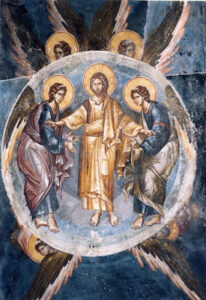
Orthodoxy gives us a continual series of Holy Days which keep us focused on the great events by which God has saved us: Wonderful festivals to celebrate. Fascinating saints to honor and learn from.
Now it’s Pascha. Get ready: Here comes Ascension Day.
4 Do they not believe in God the Creator?
I’m copying an article, ‘way below, about the relationship of religion and science, because I am distressed by the revolt against science taking place in America today.
A very personal Introduction
I have a degree in meteorology – “atmospheric science” they call it today – and worked in it briefly * before going off to seminary. I was trained to think in a scientific way, in terms of evidence and its implications.
- I am now going to tell a story I’ve never told in public before. I guess it’s safe now, sixty five
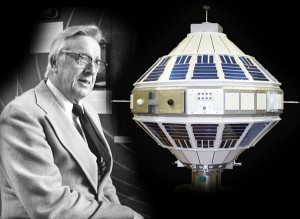 years later. I worked for Dr Verner Suomi, the man who designed and constructed the first weather satellites, a very nice man who did everything at the very last minute, including making the satellites. One morning he came in at 8 a.m. with a stack of new statistics from space. He said, nicely, “Look through these, analyze them, make maps of them and have slides made. I need to take them on an 11 a.m. flight to Tucson”. So I did. Through no virtue of mine, I made the first (very simple) weather maps from space, and made one error which I didn’t have time to correct, and off they went to Tucson. Later I saw them in the magazine Scientific American, complete with the error. Nobody had caught it.
years later. I worked for Dr Verner Suomi, the man who designed and constructed the first weather satellites, a very nice man who did everything at the very last minute, including making the satellites. One morning he came in at 8 a.m. with a stack of new statistics from space. He said, nicely, “Look through these, analyze them, make maps of them and have slides made. I need to take them on an 11 a.m. flight to Tucson”. So I did. Through no virtue of mine, I made the first (very simple) weather maps from space, and made one error which I didn’t have time to correct, and off they went to Tucson. Later I saw them in the magazine Scientific American, complete with the error. Nobody had caught it.
Let’s see. Where were we?
The point is: If we believe the Orthodox Faith, if we believe God created the universe, then science is a holy thing. Scientists discover new truths about the world God created. Can scientists make mistakes? Yes. So can theologians. However, true religion can never oppose true science, nor can true scientific discovery oppose true Christian theology, revealed by God. Both are of God.
So what are we to make of it as our government takes their chainsaw to so many agencies which deal with science? For examples, the National Weather Service, and even the office which collects climatic statistics! (What could be more harmless?) And likewise the decimation of the National Institute of Health (NIH) and the Centers for Disease Control and Prevention (CDC), which have done so much to improve our wellbeing. I am old enough to remember when scientific research produced vaccines which knocked out many of the diseases which so threatened children and terrified our parents.
Do these people not believe in science? Do they not believe in God Who created the world?
The following article clarifies the relationship between Orthodox theology and science – courtesy of and translated by John Sadinopoulos for his excellent Blog “Mystagogy”. johnsadinopoulos.com
Archbishop Christodoulos of Athens and All Greece (+ 2008) was absolutely clear on the distinct roles of faith and science.
Speaking at a scientific conference on organ transplantation, he remarked that “in our Orthodox Church we do not confuse Science with Faith and Religion. I could say, paraphrasing the word of the Lord, that we practice ‘render the things of science unto science and the things of God unto God.’ Our Church, during the centuries of the birth and development of modern science, not only did not oppose its discoveries, but its clergy themselves translated the new scientific data into Greek and were the teachers of the nation in its very difficult time of slavery to the Ottomans… In our Church you will not find cases of condemnation, such as those of Giordano Bruno or Galileo. On the contrary, you will find Aristotle and Plato, Solon and Thucydides painted in the exonarthex of its churches… For our part, we rejoice in the successes and in the progress of science and technology, and we do not hesitate to capitalize on their achievements.”
At the same time, he did not negotiate the right to “express our opinions on issues that in our opinion affect man, as the image of God, and his rights in life.”
Addressing students of Theology, he spoke about the way the Church perceives science and the common danger faced by believers and atheists: “If he tries to mix faith or atheism with science and logic he will commit a great mistake. Orthodox Theology avoided its conflict with science due to the double epistemological methodology of the Orthodox Fathers, which is based on the ontological distinction between the created and the uncreated. Orthodox Theology also treats science with respect, but within its limits and possibilities. He considers it a gift from God: ‘God gave science to human beings, so that we would praise Him for the miracles He performs’ (Sirach 38:6). As such a gift, he accepts it in thanksgiving to the Divine Giver, chooses it without fear, uses its findings and fruits to help man.
Addressing those who falsify and interpret the Holy Fathers according to their will and not according to the interpretation of the Church, in order to shield their negativism, demonizing every new scientific achievement, he was categorical: “I disagree with those who argue that because the Holy Fathers of our Church did not talk about the Science and Research of our days or saw certain issues scientifically with the knowledge of their time, it means that we either cannot talk about them or that we have to insist on their scientific understandings. The Holy Fathers gave us intelligence, the Rules of life, they gave us the model of love and above all they taught us discernment in our lives. On the basis of this inheritance we proceed and open ourselves to the sea of personal and social life. For the Church is in a state of movement, it does not have a static character. If this were to happen, she would be a fossil and would not be able to fulfill her duties, nor communicate with her flock.”
Finally, he sends a clear message to that portion of scientists who disrespect the right of people to believe in God’s saving Grace: “The Church is not afraid of education and science. After all, in her history we have brilliant minds of science who expressed their deepest religiosity. Let me remind you of this well-known scholar, who said: ‘A little science distances you from God but a lot of science brings you nearer to Him’ (Louis Pasteur). The more man measures the universe, the more he enters into the mysteries of the world, the more he recognizes the existence of God. Half-knowledge is what often makes man think he knows everything and, therefore, question this God.”
5 “Pope Francis, Ecumenical Patriarch Bartholomew shared deep bond.”
This article by Gregorio Borgia/AP is printed here courtesy of the Greek newspaper Ekathemerini, April 22, 2025. Newsroom
 The late Pope Francis, leader of the Roman Catholic Church, who passed away on Easter Monday at the age of 88, shared a deep spiritual bond and friendship with Ecumenical Patriarch Bartholomew, the spiritual leader of Eastern Orthodox Christians worldwide. Together, they also nurtured a shared vision for a united Easter celebration for all Christians, Deutsche Welle reports.
The late Pope Francis, leader of the Roman Catholic Church, who passed away on Easter Monday at the age of 88, shared a deep spiritual bond and friendship with Ecumenical Patriarch Bartholomew, the spiritual leader of Eastern Orthodox Christians worldwide. Together, they also nurtured a shared vision for a united Easter celebration for all Christians, Deutsche Welle reports.
In a statement following the news of Pope Francis’ passing, Ecumenical Patriarch Bartholomew emphasized the “brotherly friendship and cooperation for the good of both Churches” that began the moment Pope Francis ascended to the papal throne. The Patriarch described him as a “faithful friend, co-traveler, and supporter,” a true friend of Orthodoxy, and a personal friend as well. “We will always remember him,” he concluded, expressing a profound sense of personal loss.
Their special bond was reflected in many significant moments over the years. Most recently, Pope Francis had expressed a desire to visit the Ecumenical Patriarchate in Istanbul this year to celebrate Easter—coinciding for both Orthodox and Catholic Christians—with Ecumenical Patriarch Bartholomew, on the 1,700th anniversary of the First Ecumenical Council, which took place in Nicaea, Bithynia in 325 AD.
The deep connection between the two spiritual leaders was made clear from the beginning of Pope Francis’ papacy. Notably, Patriarch Bartholomew attended the Pope’s enthronement ceremony on March 19, 2013, in Rome. His presence was particularly symbolic, as he was the first Patriarch of Constantinople to attend the enthronement of a Pope since the Schism of the Churches in 1054.
In 2014, the two leaders visited the Church of the Resurrection in Jerusalem, prayed at the Holy Sepulchre, and signed a Joint Declaration on the full communion of the Orthodox and Roman Catholic Churches.
Later that same year, Pope Francis became the first head of state to be received in Ankara by the newly elected President Recep Tayyip Erdogan. The following day, he visited the Ecumenical Patriarchate in Istanbul, where, together with Patriarch Bartholomew, they attended a joint liturgy at the Patriarchal Church of St. George—on the feast day of St. Andrew, patron saint of the Church of Constantinople. The moment was a significant milestone in the relationship between the two Churches, as the two spiritual leaders stood together, warmly applauded by a crowd of faithful.
In 2016, amid the migration crisis, Pope Francis, together with Patriarch Bartholomew and Archbishop Ieronymos of Athens, visited the Moria refugee camp on the island of Lesvos. There, they offered blessings to hundreds of migrants—unaccompanied children, women with infants, and desperate men—who had managed to survive the perilous journey to the island.
6 Our favorite “Atheist” discovers Theosis.
7 Interesting Statistics
Religion in Russia and Ukraine
From Interfax, 2022:
Most Russians (68%) consider themselves Orthodox Christians. The percentage of such Russians in the 45-59 age group reaches 76%. In Russia, about 6% of Orthodox adults attend church at least once a week. This is among the lowest rates of observance in the world for Orthodox Christians.
From Kiyv International Institute of Sociology in 2022, just after the Russian invasion:
 Now 72% of respondents identify themselves as Orthodox. Second, the Orthodox Church of Ukraine definitely “leads” among the Orthodox Churches. In general, 54% of all respondents identify themselves specifically with the Orthodox Church of Ukraine. Only 4% now identify themselves with the Ukrainian Orthodox Church of the Moscow Patriarchate. Another 14% consider themselves simply Orthodox, without specifying the Patriarchate. Third, compared to 2021, the share of those who identify with the Orthodox Church of Ukraine increased from 42% to 54%. Instead, the share of those who identify with the Ukrainian Orthodox Church of the Moscow Patriarchate decreased from 18% to 4%.
Now 72% of respondents identify themselves as Orthodox. Second, the Orthodox Church of Ukraine definitely “leads” among the Orthodox Churches. In general, 54% of all respondents identify themselves specifically with the Orthodox Church of Ukraine. Only 4% now identify themselves with the Ukrainian Orthodox Church of the Moscow Patriarchate. Another 14% consider themselves simply Orthodox, without specifying the Patriarchate. Third, compared to 2021, the share of those who identify with the Orthodox Church of Ukraine increased from 42% to 54%. Instead, the share of those who identify with the Ukrainian Orthodox Church of the Moscow Patriarchate decreased from 18% to 4%.
Is wasting taxpayers’ money a moral issue? As mentioned above, budgets for many US government agencies are being slashed because of assumed (though not necessarily demonstrated) inefficiency. Oddly, one is not, even though the Pentagon’s budget is the largest of any US government department.
This article was from: https://responsiblestatecraft.org/pentagon-audit-2666415734/: December 04, 2023
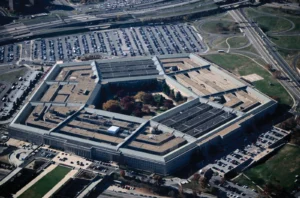
Pentagon Inefficiency
The Pentagon failed its sixth audit in a row last month. And “failed” is putting it generously. The department actually received a “disclaimer of opinion.” According to the Government Accountability Office, that means “auditors were unable to obtain sufficient, appropriate evidence to provide a basis for an audit opinion.” So the outcome is more like an “incomplete” than an abject failure.
Thank you for all this, Father!
I heard it said once that Science deals with How questions, and Faith deals with Why questions.
An atheist once said to a Christian, “No-one has been able to prove to me by the scientific method that God exists.”
The Christian replied, “I have a similar problem: no-one has been able to prove to me by the theological method that atoms exist.”
You’re welcome.
Actually, Father David, not even science can prove that atoms exist. Science gives us not proofs but only probable theories. The theory that atoms underly existence has passed the test of time, thus far – but tomorrow some fresh discovery might undercut it.